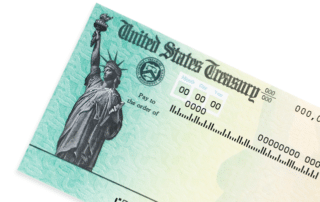elder lawIn light of the recent $600 stimulus bill payments, as well as the potential for up to $1,400 more to be paid to all eligible individuals over the next few months, we wanted to update you regarding the effect of the stimulus payments on Medicaid eligibility. Additionally, as well as an update on the long-term care communities’ responsibilities regarding the payments for residents.
In May 2020, the NJ Division of Medical and Health Services (DMAHS) advised that an individual, including a nursing home resident, can make cash gifts to family and friends without impacting Medicaid.
Specifically, per DMAHS: “CMS states that gifting of stimulus funds will not count as a transfer of assets during the 12 months following the receipt of the funds. If the money has not been spent after 12 months, it will count as a resource in determining eligibility and if gifted at that time, would be considered a transfer.”
Based upon the DMAHS directive, the Office of NJ Long-Term Care Ombudsman for the Institutional Elderly, has published directives for long-term care communities. The directives for the handling of a resident’s stimulus payments include:
- At the resident’s direction, LTC facilities can deposit stimulus funds in the resident’s PNA account. However, the spending from that account is directed by the resident and is not in any way controlled by the facility.
- A resident who has an outside bank account can deposit the funds in that bank account. The resident should be advised that the stimulus funds will not be counted as an asset for 12 months. The resident should be informed that they can spend the money however they wish, including giving money to friends or relatives.
- If an alert and oriented resident wants the funds to be given to a POA or person designated by the resident, they can do that also. This designee or POA can manage the funds and make purchases for the resident.
- If a resident is not alert and oriented and there is no designated POA and a friend or family member is asking for access to the stimulus funds, the long-term care facility should consider how involved and engaged this individual has been with the resident in the past. Among the considerations should be if this individual: has any other legal authority including health care proxy; is listed as a contact person on the face sheet; is frequently in contact with the resident; has assisted the resident in spending PNA funds in the past. If the determination is made to turn the funds over to this individual, the individual should be advised to maintain records of how the funds were spent for the benefit of the resident.
For residents who are not alert and orientated and who have no POA, designated representative or anyone from outside the facility who is actively engaged in their lives, the LTC facility should utilize the stimulus funds for the purchase of items that the resident might need – like clothing or shoes – and also for items that might bring the resident comfort or pleasure – like a new blanket, art, edible treats or an MP3 player.
Should you have any questions regarding the effect of stimulus payments on Medicaid eligibility, please feel free to contact Rothkoff Law Group.


